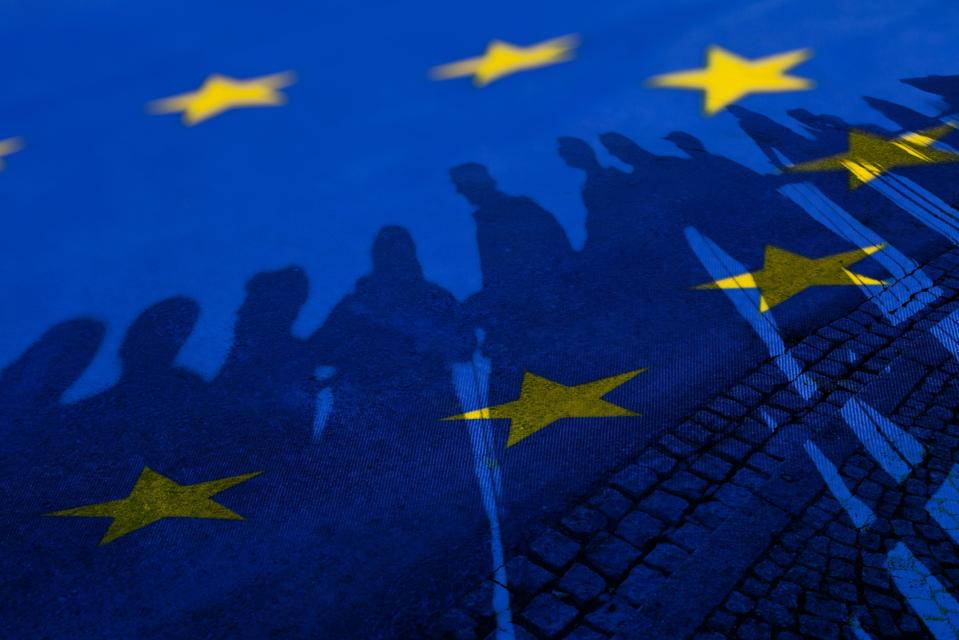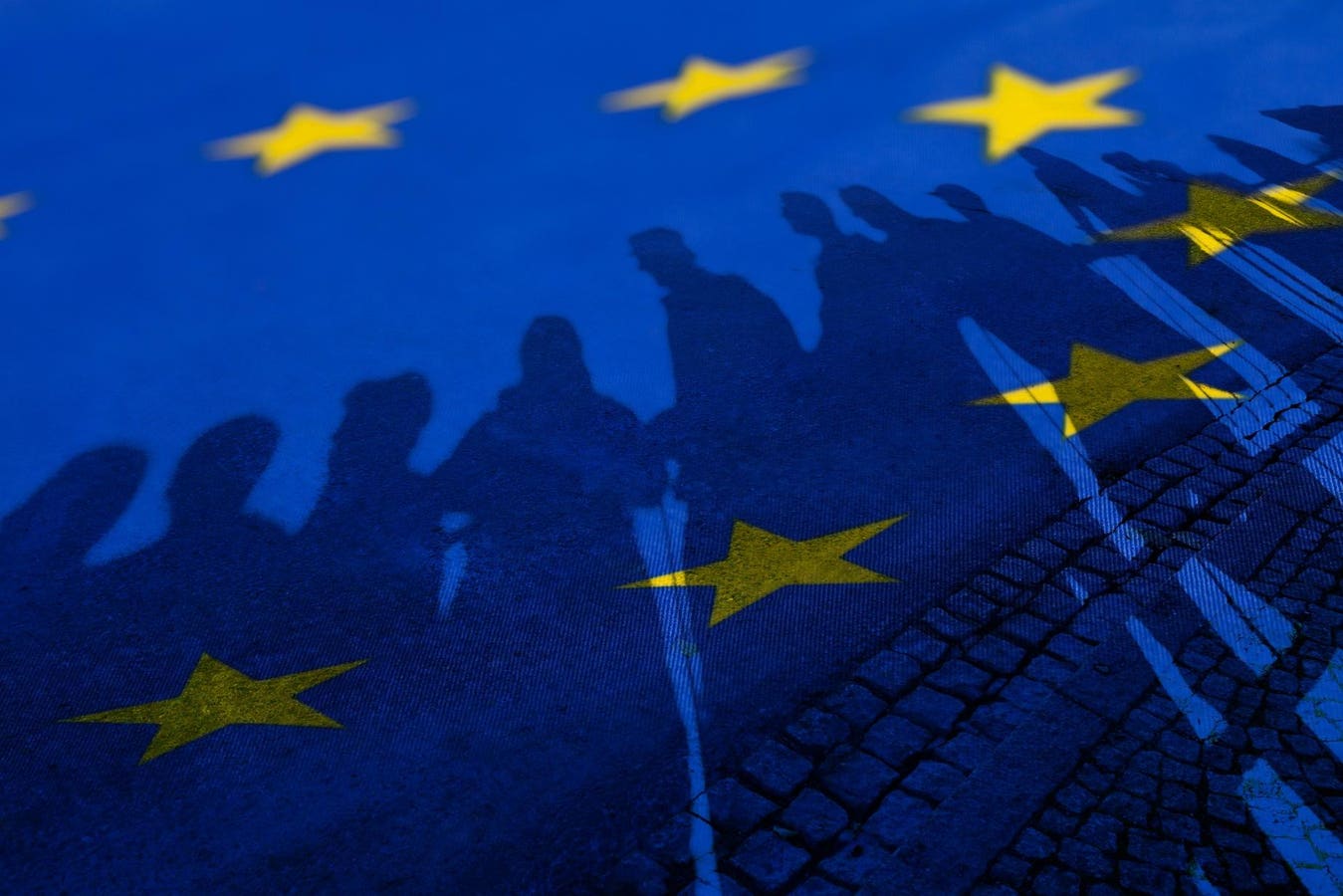
Flag of European Union with silhouette of people
getty
New legislation aimed at curbing greenwashing in the European Union was in the final stages of negotiations when anti-green sentiment stalled the process. The Green Claims Directive was proposed in 2024 as a way to prevent businesses from engaging in marketing claiming they are environmentally friendly, without proof. The anti-greenwashing directive was nearing completion, when members of the European People’s Party in Parliament threatened to block its adoption, prompting the Commission to temporarily withdraw support. As leaders in the Commission debate the next step, the future of the directive remains uncertain.
In February 2024, the EU adopted the Directive on Empowering Consumers for the Green Transition, legislation that specifically targeted green and climate related claims. The Directive banned generic environmental claims “without recognised excellent environmental performance which is relevant to the claim.” Examples of problematic language in the legislation are “‘environmentally friendly’, ‘eco-friendly’, ‘green’, ‘nature’s friend’, ‘ecological’, ‘environmentally correct’, ‘climate friendly’, ‘gentle on the environment’, ‘carbon friendly’, ‘energy efficient’, ‘biodegradable’, ‘biobased’ or similar statements that suggest or create the impression of excellent environmental performance.”
The Green Claims Directive is designed to work alongside the Empowering Consumers Directive “by addressing specific aspects and requirements for explicit environmental claims, which are environmental claims made in written form or orally, and environmental labelling schemes and the corresponding environmental labels as regards their substantiation, communication and verification.”
The Directive targets explicit environmental claims that are either written or oral and environmental labels that companies use voluntarily in their marketing. The goal is to make environmental claims “clear and easy to understand” by the consumer.
In June 2024, the Council of the European Union announced its position on the Green Claims Directive. The Commission, Council, and Parliament were in the “trilogue” negotiations on the final language. The directive appeared poised for passage, but momentum to rollback green initiatives caught the green directive.
The Parliament elections during the summer of 2024 brought strong political pushback on the European Green Deal. Members of the European People’s Party campaigned on a platform that green regulations are overwhelming businesses in the EU and stifling Europe’s economy. The elections shifted the composition of the Parliament to the right, with The Left and The Green Party losing seats.
Reforms came quickly with the introduction of the Omnibus Simplification Package, a series of bills aimed at reducing the requirements of the Corporate Sustainability Reporting Directive and the Corporate Sustainability Due Diligence Directive. As changes to the CSRD and CSDDD are being debated in the Parliament, the green backlash spilled over into the yet to be adopted Green Claims Directive.
In mid June, members of Parliament from the EPP sent a letter to the environment Commissioner Jessika Roswall threatening to pull all support of the directive. On June 20, the Commission announced they were planning to withdraw the proposal, a procedural step that would terminate negotiations.
On June 23, it was leaked that Italy had withdrawn support of the bill in the Commission. This eliminated the majority support, removing the ability of the Commission to engage in negotiations. That same day, the Commission canceled the trilogue meeting with the Parliament.
The political blowback was swift from moderate political parties, threatening the support of Commission President Ursula von der Leyen. For a presidency in a multi-party system, where leadership is based on coalitions rather than majority, the loss of support could be devastating. However, by June 24, the Commission was reversing course. According to Marianne Gross and Karl Mathiesen at Politico, von der Leyen is standing by the directive and pushing for its adoption. Leadership in the Commission met on June 25 to discuss the directive, but no resolution was announced.
I expect the Commission may follow the same path as the troubled CSDDD negotiations. In February 2024, the CSDDD was poised for easy passage, then the Commission changed their terms after an agreement was reached. The move frustrated the process and activists. The result was a weakened directive, that is being further reduced through the Omnibus. Watch for the Commission to propose a reduced Green Claims Directive, most likely removing some SMEs from falling under the requirements. For now, negotiations on the anti-greenwashing legislation are stalled
